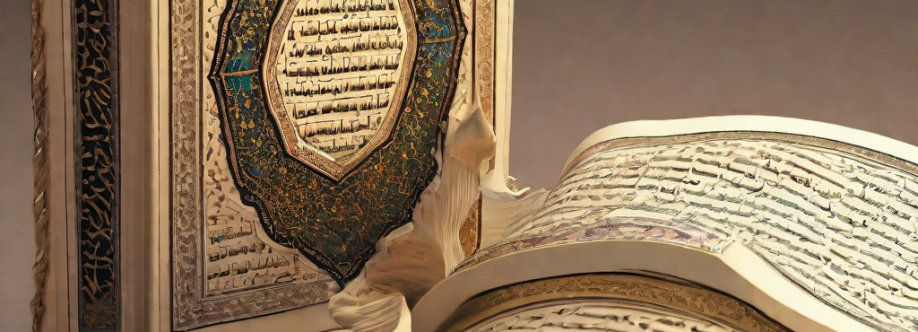According to the Quran, freedom of religion and belief is an indispensable right guaranteed to all human beings. While faith in the One Almighty God is strongly encouraged, imposition of any particular doctrine through coercion is strictly prohibited. As you know, mankind was created inherently diverse in tribes, tongues and colors so that we may appreciate each other's uniqueness and live together in peace.
Rather than conflicts, the Quran emphasizes mutual understanding between communities. It teaches that religious differences should be resolved through patience, compassion and logical persuasion alone. No one has the right to rule over another or cause them harm on account of their convictions. As the ultimate Judge, God Alone will assess each soul based on their sincere striving for truth and righteousness.
In this spirit, believing communities must affirm the freedom and dignity of those with other persuasions. While sharing their conviction in a spirit of amicable discourse, they should also defend the rights of others to hold alternative opinions without facing oppression, fear or intimidation. This is the just, wise and balanced path shown by the Quran - one that uphelds liberty of thought along with mutual empathy and goodwill between all people.


quranexplains
Asalaamu alaykum. Since mankind was created, there have always been differences in beliefs and opinions regarding religious and spiritual matters. However, the one true guidance that can resolve all disagreements and disputes is the pure, uncorted teachings of the Quran.
The Quran teaches us that differences and diversity among humanity was part of God's wisdom and plan. However, it also teaches the most important thing is to believe sincerely in One God, to do good deeds, and to avoid harming others. Beyond these basic principles of faith, tolerance and cooperation should be the guiding approach in all relations between people.
While scholarly debates have their place, what is most urgently needed today is for people of all backgrounds to reflect deeply on the Quranic messages of mercy, justice, compassion and human dignity. If its core ethics of respect, kindness and fairness shaped both private and public affairs, we would surely attain a more harmonious world.
The Quran reminds us that no soul shall bear another's burden, and our duty is only to convey the message through wise and good reminder. Ultimately, judgment belongs to God alone. So instead of conflict, we would do best focusing our energies on cultivating piety, generosity and righteousness in ourselves and our communities.
https://www.facebook.com/reel/373434435273118
Surah Az-Zumar (39:5) states:
"He created the heavens and earth in truth. He wraps the night over the day and wraps the day over the night and has subjected the sun and the moon, each running [its course] for a specified term. Unquestionably, He is the Exalted in Might, the Perpetual Forgiver."
This verse highlights the power and authority of Allah as the Creator of the heavens and the earth. It emphasizes the precision and order in the natural phenomena, such as the alternation of night and day, the movement of the sun and the moon, and the predetermined durations for each. Allah's ability to control and govern these celestial bodies demonstrates His supremacy and wisdom.
Furthermore, the verse mentions Allah as the Exalted in Might, emphasizing His strength and sovereignty. It also highlights His attribute of forgiveness, describing Him as the Perpetual Forgiver. This serves as a reminder of Allah's mercy and willingness to forgive His servants when they seek His forgiveness with sincerity.
Related verses that expand on the creation and the attributes of Allah include Surah Al-Baqarah (2:29):
"It is He who created for you all of that which is on the earth. Then He directed Himself to the heaven, [His being above all creation], and made them seven heavens, and He is Knowing
Chapter 38 of the Quran is Surah Sad. It is a chapter that highlights the story of the Prophet David (Dawud) and his interaction with his people. While I can provide a general overview of the essence of verses 1-8, please note that a comprehensive understanding of the Quran requires studying the context, commentary, and interpretation by scholars. Here is a summary:
Verses 1-2: These verses introduce Surah Sad and emphasize the Quran as a revelation from Allah, the Wise and Merciful.
Verses 3-4: Allah recounts the story of the Prophet David, who was granted wisdom and authority by Allah. David was tested with challenges and was always grateful to Allah.
Verses 5-8: The verses mention the story of the two disputing men who approached David for judgment. David listened carefully to their arguments and made a just decision, which pleased Allah. This story highlights David's wisdom and fairness in resolving disputes.
The essence of these verses includes the recognition of the Quran as divine revelation, the showcasing of the Prophet David as a wise and just leader, and the importance of seeking justice in resolving conflicts. It also emphasizes gratitude to Allah and the recognition of His authority and wisdom.
It is important to note that a deeper understanding of the Quran requires studying the entire chapter within its context, including the verses that follow. Interpretation and understanding can be enhanced by referring to the explanations provided by scholars and experts in Quranic studies.



